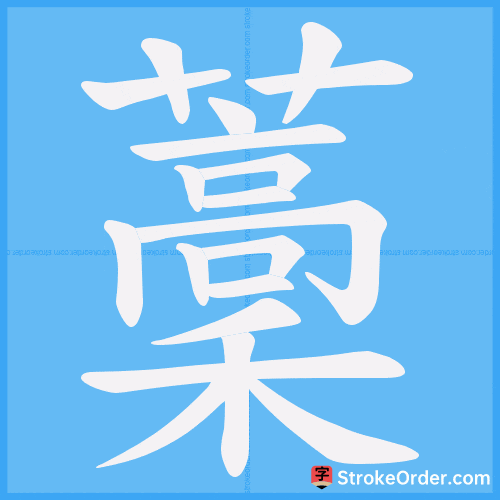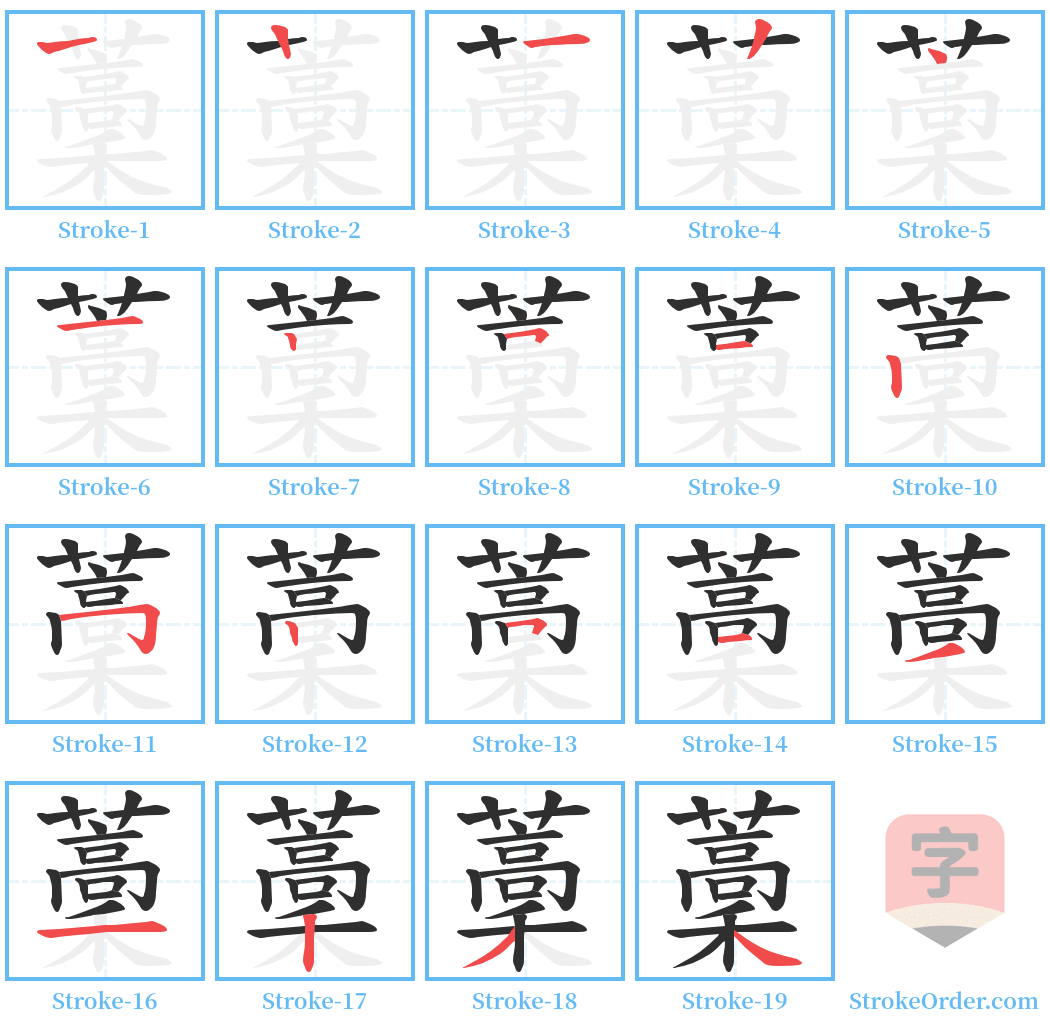藳 Stroke Order
Animated Stroke Order of 藳

Stroke Order Diagrams for 藳

Information of 藳
Pinyin
gǎo
Radical
艹
Strokes
18 strokes
Usage
★★
Definition
Definition of 「藳」:
1. Ancient form of “稿” (draft).
2. The stalks of grains, stems of cereal plants. Also written as “稾”. 稾 (qiao) means stalk.
- Example: "民惊走持稾。" (The people were frightened and ran carrying the stalks.) - From "Han Shu · Wu Xing Zhi".
- Example: "又出稾税。" (Additionally, there is tax on the stalks.) - From "Shu · Yu Gong Zhuan".
- Example: "今又盛寒,马无稿草。" (Now it is cold again, and the horse has no draft grass.) - From "Zi Zhi Tong Jian".
- Example: "愿令民得入田,毋收稾稾为禽兽食。" (I hope the people can enter the fields, and not gather the stalks for livestock to eat.) - From "Shi Ji · Xiao Xiang Guo Shi Jia".
3. The drafts and sketches of poetry, literature, and paintings. It also refers to written articles and works.
- Example: "怀王使屈原造为宪令,屈原属草稿未定,上官大夫见而欲夺之,屈原不与。" (King Huai ordered Qu Yuan to create a law; Qu Yuan submitted a draft that was not finalized. When Shangguan the minister saw it, he wanted to take it, but Qu Yuan did not give it to him.) - From "Shi Ji · Qu Yuan Jia Sheng Lie Zhuan".